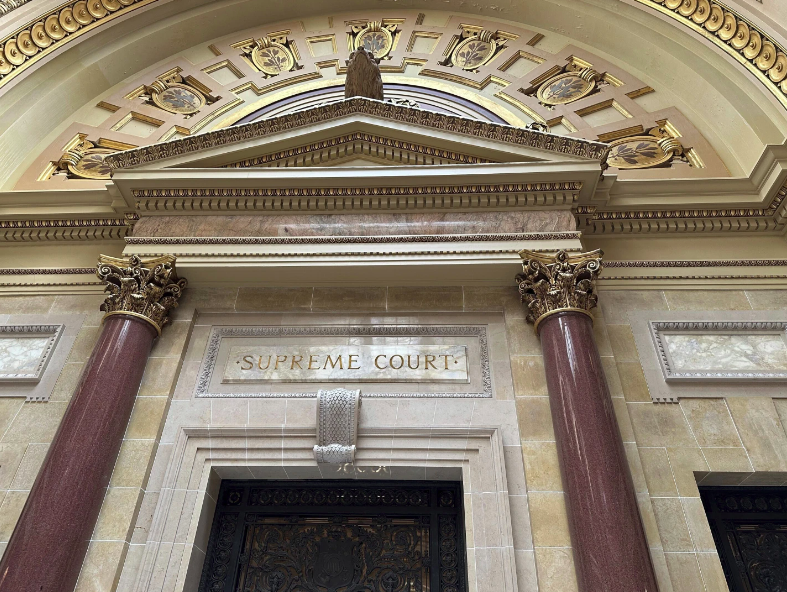In honor of the thousands of graduating college seniors celebrating commencement across the country this spring, we’re exploring the issue of religious freedom on college campuses. Read what faculty members and graduating students have to say about religious liberty at institutions of higher education in general and at Georgetown University specifically.
By: Kevin D. Sullivan
At the heart of the Catholic faith, and indeed even in its very name “Catholic,” is a recognition and appreciation for the universality of Catholicism. The beliefs, doctrines, and way of life that flow from Catholicism have a specific nature, but are applicable in an incredibly diverse number of ways. Learning this reality, especially through the lens of the Ignatian tradition, showed me the importance of religious freedom not only to my alma mater, Georgetown University, but to all universities. In many ways, I have seen the Georgetown community express why religious freedom is not just about surface-level tolerance, but about benefiting from an environment where faith is welcome in the public square. From this perspective, it is not just important that universities protect religious freedom in the legal sense, but that they also seek to encourage a culture of religious freedom.
As the Pew Forum reports, growing social hostility toward religion in the West is often just as strong a barrier to religious freedom as legal hostility in places like the Middle East and Asia. Universities in the United States are often bastions of this social hostility, but even more often, they are hosts to cultures of religious tolerance, which promote respecting others right to their personal beliefs and private practice without actually engaging them. These environments suffocate the ability of individuals to contribute meaningfully to their community and public square through their faith. Georgetown—and other Catholic universities—can provide and promote an entirely different atmosphere and culture: one of social religious freedom.
At Georgetown, I often give the example that Muslim and Hindu students are often greater advocates of a strong and robust Catholic and Jesuit identity than some Catholic students. Many of my Muslim and Hindu friends point not only to their ability to speak openly and comfortably about their faith in the classroom, with their professors, and with their peers, but also to the encouragement to do so. This encouragement to bring their faith into their studies and their public life is in many ways radically different than environments of social hostility to religion or cultures of surface-level tolerance at many peer universities. It goes further, recognizing the inherent value of religion not only to the individual, but to societal flourishing, as we like to call it at the Religion Freedom Project.
This culture of religious freedom is also present at the institutional level at Georgetown and should be sought out and supported even further. The home of the Religious Freedom Project—the Berkley Center for Religion, Peace and World Affairs—is a prime example of a Catholic university institutionally promoting a strong sense of religious freedom. The basic premise of the Berkley Center is that religion, both from an individual and a societal perspective, is crucial to understanding the way the world works and the way in which cultures and nations engage with one another. At secular universities, this proposition is often rejected simply out of a disregard for religious belief or out of a fear of engaging in a “controversial” subject like religion. Yet as the past few tremendous years of well-attended and attention-grabbing conferences, publications, faculty, and research at the Berkley Center have shown, this claim has tremendous explanatory power and relevance to the problems of our nation and world.
This culture of religious freedom—recognizing that religious faith and practice is not just a personal good, but important to the public good—is what could make Georgetown and its peer Catholic universities vital contributors to our national and international dialogue. The work of projects like the Religious Freedom Project, which has given me and many other students an opportunity to see our personal faith and beliefs as contributions to the public square, is incredibly important to not just our mission as a Catholic and Jesuit university, but to the world.
Kevin D. Sullivan is the projects manager for the Initiative on Catholic Social Thought and Public Life at Georgetown University.
This piece was originally authored on May 13, 2014 for the Religious Freedom Project at Georgetown’s Berkley Center for Religion, Peace, and World Affairs.
THE RFI BLOG

How Soccer Reveals Different Meanings Of ‘Secular’ In France And The US

RFI’s Ismail Royer Meets with Delegation from India

Protecting the Unborn, Mothers, and Medical Ethics: The Stakes of Arkansas’ Amendment

Wisconsin Supreme Court Punishes Catholic Charities for Serving Everyone

Wisconsin Supreme Court Decision Truncates Religion
CORNERSTONE FORUM

Public Bioethics & the Failure of Expressive Individualism

Religious Liberty in American Higher Education

Scotland’s Kate Forbes and the March of Secularism

70 Years of Religious Freedom in Sweden: Prospects and Challenges


